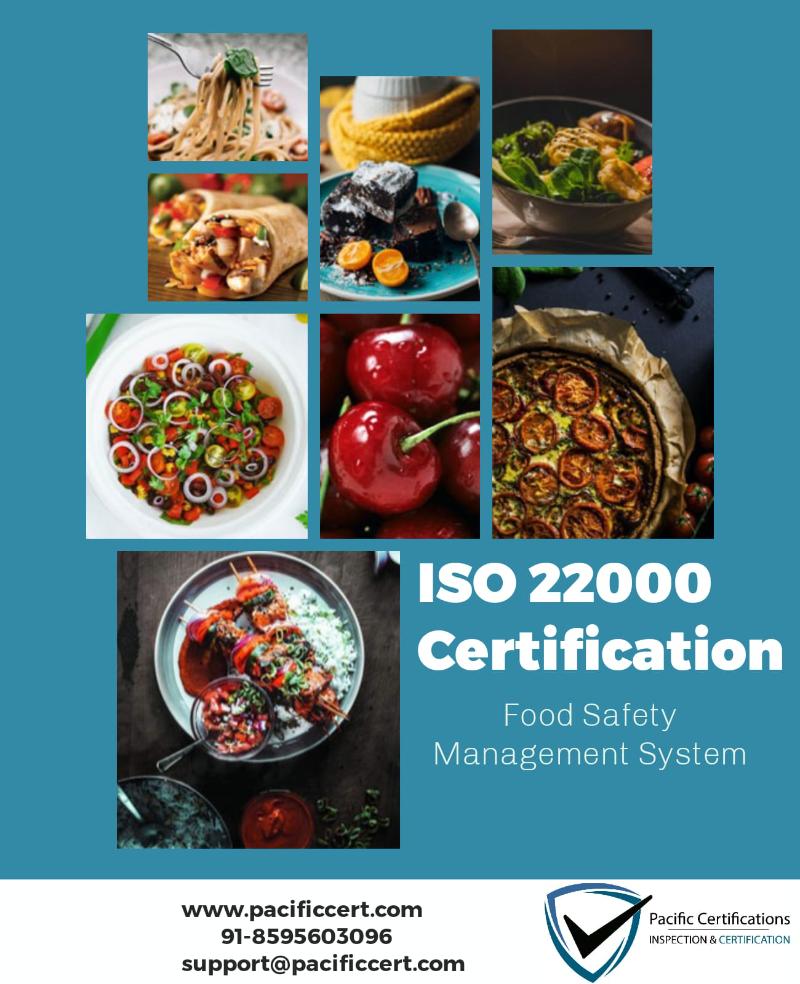ISO Certifications for Accommodation and Food Services, Requirements and Benefits

Quick Summary
The article highlights how ISO certifications help accommodation and food service providers improve quality, hygiene, safety and customer satisfaction. Key standards include ISO 9001 for service consistency, ISO 22000 for food safety, ISO 14001 for environmental practices, ISO 45001 for workplace safety and ISO/IEC 27001 for securing customer data. By adopting these frameworks, businesses reduce risks, maintain clean and safe operations, and strengthen brand reputation across hotels, restaurants and catering services. ISO certification supports stronger processes and builds confidence among customers and partners.
Introduction
The accommodation and food services industry operates in a highly competitive environment where customer experience, hygiene, safety and service quality directly influence business growth. Hotels, restaurants, cafés, resorts, cloud kitchens and catering companies rely on structured management systems to maintain consistent standards across daily operations. ISO certifications provide globally recognised frameworks that help organisations strengthen food-safety controls, improve service delivery, manage environmental impact, protect customer data and ensure a safe working environment for staff. Standards such as ISO 9001, ISO 22000, ISO 14001, ISO 45001 and ISO/IEC 27001 support operational reliability and long-term customer trust. For businesses working to meet rising customer expectations and tighter compliance norms, ISO certification has become an important tool for ensuring quality, safety and smooth operations.
For organizations in the Accommodation and Food Service industry, achieving ISO certifications can be beneficial as it demonstrates your commitment to quality, safety, and environmental responsibility. Here are some of the key ISO standards applicable to this sector:
ISO 9001:2015 (Quality Management System):
This standard focuses on improving the overall quality of your services. It helps in ensuring customer satisfaction through consistent quality. It can be applied to various aspects of your business, including customer service, food safety, and facility management.
ISO 22000:2018 (Food Safety Management System):
Specifically designed for organizations in the food industry, ISO 22000 helps ensure food safety from production to consumption. It covers aspects like hygiene, handling, and storage of food products, which are crucial in the food service industry.
ISO 14001:2015 (Environmental Management System):
This standard is essential for managing environmental impacts, including waste management and energy consumption. For the food service industry, it can help reduce the environmental footprint through responsible sourcing and waste reduction.
ISO 45001:2018 (Occupational Health and Safety Management System):
Safety is a top priority in the accommodation and food service industry. ISO 45001 helps in ensuring the safety of your employees and guests by identifying and managing occupational health and safety risks.
ISO 27001:2022 (Information Security Management System):
Information security is crucial, especially in managing customer data and financial transactions. ISO 27001 helps in protecting sensitive information from breaches and cyber threats.
ISO 50001:2018 (Energy Management System):
Managing energy efficiently is vital in the hospitality industry, where energy consumption can be substantial. ISO 50001 assists in reducing energy costs and environmental impact through better energy management practices.
ISO 22301:2019 (Business Continuity Management System):
This standard ensures that your business can continue operating even during disruptions like natural disasters or emergencies.
ISO 20121:2012 (Event Sustainability Management System):
If your business includes event management, this standard can help ensure that events are sustainable and environmentally responsible.
Click here to find more applicable standards to your industry
These ISO standards can provide a structured framework for improving various aspects of your business in the Accommodation and Food Service industry. It's essential to choose the standards that align with your organization's goals and needs. If you're interested in pursuing any of these certifications, you can contact us, Pacific Certifications at [email protected] for assistance with the certification process.
Requirements of ISO Certifications for Accommodation and Food Service Industry
Let’s delve deeper into the requirements and benefits of ISO certifications for the Accommodation and Food Service Industry.
Understanding of ISO Standards:
The first step is to familiarize yourself with the specific ISO standards that are relevant to your industry. Determine which standards align with your organization's goals and objectives.
Documentation:
ISO certifications typically require organizations to develop and maintain documented processes and procedures that conform to the standard's requirements. This may involve creating quality manuals, process documents, and records.
Training and Awareness:
Ensure that your staff is adequately trained and aware of the ISO standard's requirements. Training can include understanding the principles of the standard, its implementation, and its ongoing maintenance.
Implementation:
Implement the processes and procedures outlined in the ISO standard. This may involve making changes to your current practices to meet the standard's requirements.
Internal Audits:
Conduct regular internal audits to assess the effectiveness of your management system and identify areas for improvement.
Management Review:
Top management should review the performance of the management system regularly to ensure it aligns with the organization's objectives and is continually improved.
External Certification Audit:
After implementing the ISO standard's requirements and conducting internal audits, an external certification body, such as Pacific Certifications, will perform a certification audit to verify compliance with the standard.
Benefits of ISO Certifications for the Accommodation and Food Service Industry
Enhanced Quality:
ISO certifications, particularly ISO 9001, focus on quality management systems. By implementing these standards, you can improve the quality of your services, leading to higher customer satisfaction and loyalty.
Food Safety:
ISO 22000 specifically addresses food safety management, helping you ensure that the food products you serve are safe for consumption, reducing the risk of foodborne illnesses.
Environmental Responsibility:
ISO 14001 helps you manage environmental impacts, making your organization more eco-friendly and reducing environmental risks.
Safety and Health:
ISO 45001 ensures a safe and healthy working environment, reducing accidents and promoting employee well-being.
Information Security: ISO 27001 safeguards sensitive information, including customer data and financial records, protecting your reputation and customer trust.
Efficiency: ISO standards often lead to improved processes and increased operational efficiency, reducing costs and resource wastage.
Competitive Advantage: Having ISO certifications can give you a competitive edge in the market, as many customers prefer to work with certified organizations.
Legal Compliance: ISO certifications can help you stay in compliance with legal and regulatory requirements in the food and hospitality industry.
Sustainability: ISO 20121 and ISO 50001 promote sustainability practices, which are increasingly important in today's environmentally conscious world.
Risk Management: ISO standards provide a framework for identifying and managing risks effectively, reducing the likelihood of incidents that can harm your business.
Conclusion
By meeting the requirements of ISO certifications and reaping the associated benefits, organizations in the Accommodation and Food Service Industry can establish themselves as quality-conscious, responsible, and competitive entities in their respective markets.
If you are interested in pursuing ISO certifications, you can contact us at Pacific Certifications, accredited by ABIS[email protected] for guidance and assistance throughout the certification process.
Ready to get ISO certified?
Contact Pacific Certifications to begin your certification journey today!
Suggested Certifications –
Read more: Pacific Blogs

